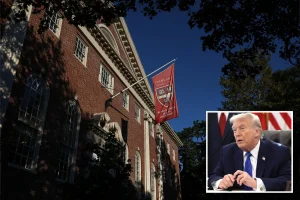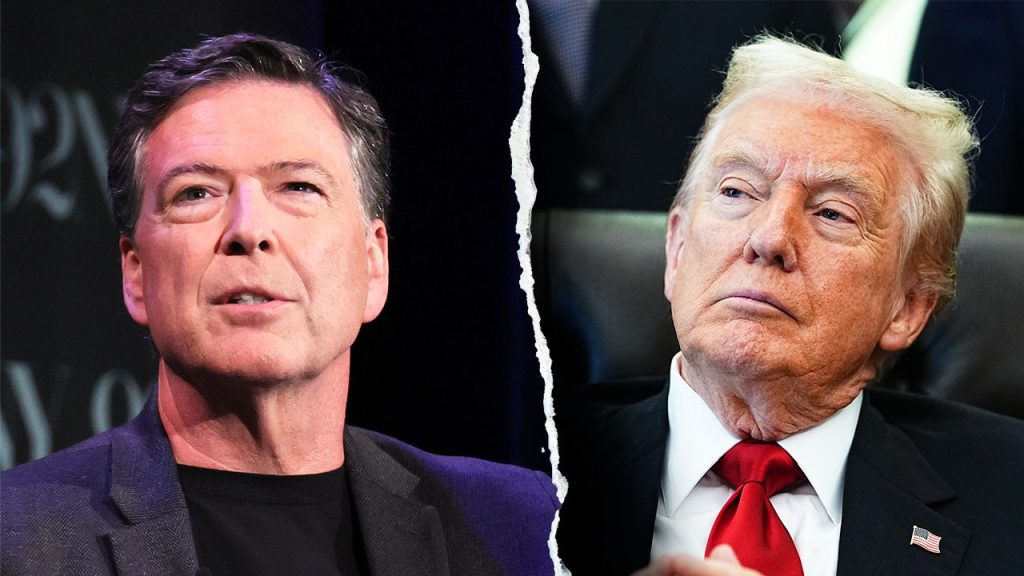Comey Case Dismissed: Former FBI Director Hails Judge’s Decision Against “Malevolence and Incompetence”
In a significant legal development, former FBI Director James Comey expressed profound relief after a federal judge dismissed the false statements charges against him. The ruling came from Judge Cameron Currie, who determined that the prosecution was fundamentally flawed because it was brought by an unqualified U.S. attorney. Comey didn’t mince words in his response, calling the case “a prosecution based on malevolence and incompetence” that reflects “what the Department of Justice has become under Donald Trump.” His emotional statement highlighted not just personal vindication but a broader concern about the institution he once led. While expressing gratitude to his legal team, Comey framed the dismissal as something more consequential than his personal circumstances, suggesting it represented a necessary stand against political weaponization of the justice system.
The case against Comey carries deeper implications for American democracy and the rule of law, according to the former FBI Director. “This case mattered to me personally, obviously, but it matters most because a message has to be sent,” Comey stated, emphasizing that “the president of the United States cannot use the Department of Justice to target his political enemies.” His appeal transcended partisan divisions, noting that such practices should be viewed as “fundamentally un-American and a threat to the rule of law that keeps all of us free.” Despite the legal victory, Comey appeared to anticipate continued pressure from the Trump administration, calling on Americans to “stand up” against what he characterized as “fools who would frighten us,” and implying that Trump represents a threat to democratic norms as a “would-be tyrant.”
Judge Currie’s ruling extended beyond Comey’s case to also dismiss charges against New York Attorney General Letitia James on identical grounds. The judge’s decision hinged on the legitimacy of Lindsay Halligan’s appointment as Interim U.S. Attorney for the Eastern District of Virginia. “I conclude that the Attorney General’s attempt to install Ms. Halligan as Interim U.S. Attorney for the Eastern District of Virginia was invalid and that Ms. Halligan has been unlawfully serving in that role since September 22, 2025,” Currie wrote in her ruling. The significance of the appointment issue necessitated bringing in Currie, a Clinton appointee based in South Carolina, to hear the case because it presented potential conflicts for Virginia judges. The challenges from both Comey and James were consolidated due to their similar circumstances and legal questions.
The controversy surrounding Halligan’s appointment reflects a broader pattern in the Trump administration’s approach to federal prosecutorial positions. Halligan, formerly a White House aide and insurance lawyer with limited prosecutorial experience, was installed after Trump removed the previous interim U.S. attorney, Erik Siebert. Attorney General Pam Bondi implemented this change at Trump’s urging, but Judge Currie found that this appointment process violated proper procedure. According to the ruling, Siebert’s interim term had already expired, which meant the authority to appoint a temporary U.S. attorney properly belonged to Virginia judges until Trump could secure Senate confirmation for his preferred candidate. This procedural defect proved fatal to the cases against both Comey and James.
The Comey case dismissal represents part of a broader legal pattern challenging the Trump administration’s approach to federal prosecutor appointments. The administration has struggled to secure Senate confirmation for U.S. attorneys in several Democratic-leaning states, leading to attempts to bypass traditional appointment procedures. Judge Currie’s decision follows similar rulings by federal judges in California, New Jersey, and Nevada, where Trump-appointed prosecutors were also disqualified on procedural grounds. The Trump administration has maintained that Halligan was legally appointed despite these judicial findings and has indicated an intention to pursue further legal action, suggesting this constitutional conflict between executive authority and judicial oversight remains unresolved.
The dismissal of charges against Comey marks a significant moment in the ongoing tension between the former FBI Director and President Trump. Their relationship has been characterized by mutual distrust since Comey’s firing in 2017, which later became a central focus in investigations of potential obstruction of justice. Comey’s characterization of the case as reflecting “heartbreaking” changes at the Department of Justice carries particular weight given his former leadership role in federal law enforcement. His warning about continued targeting despite legal setbacks suggests he views the dismissed charges not as an isolated incident but as part of a systematic approach to using federal law enforcement against perceived political opponents. As this legal saga continues to unfold, it highlights fundamental questions about prosecutorial independence and the proper boundaries between political leadership and the administration of justice.















